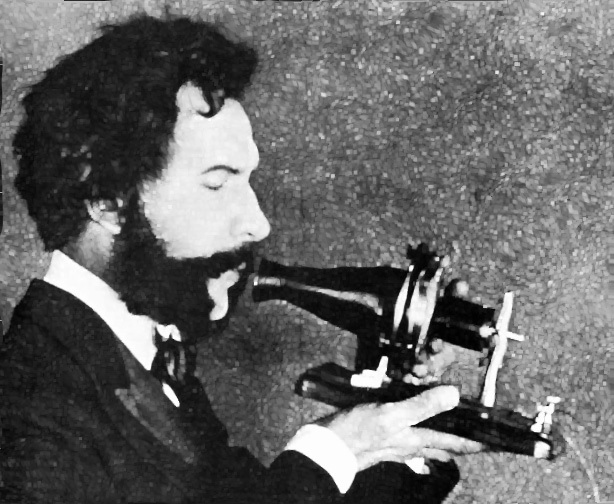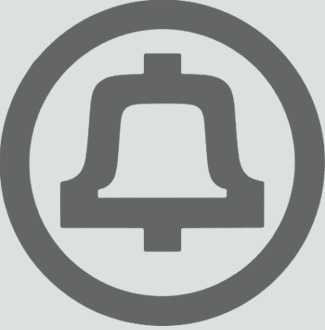Telecom Informer
by The Prophet
Hello, and greetings from the Central Office! When I wrote the spring column, we were the first place in the country to be experiencing the effects of the pandemic. Now the virus is tearing through the country, killing thousands of people every day with no end in sight, and the government seemingly has no plan to get it under control. All of this has had a profound impact on the telecommunications landscape.
While voice services are regulated (and have been carefully and resiliently designed over decades to continue working through periods of extremely high demand), data services are not. The dirty little secret of telecommunications is that capacity is oversold. Just like airlines sell more seats than they have on the airplane (hoping that they "win" and get to keep a non-refundable fare as pure profit when people fail to show up for their flights), Internet and telecommunications service is also oversold.
There is a really big difference between how airlines oversell and how telecommunications firms oversell, though.
Suppose that an airplane has 100 seats and, based on historical data, the airline knows that on a given flight, 20 people on average fail to show up. The airline might, conservatively, decide to sell 110 tickets in order to pocket the difference, and they'll usually get away with it. If 110 people actually do show up, the airline will upgrade a few of them to first class and will offer the rest of them vouchers to take a later flight.
Would you believe that here in the Central Office, we oversell our capacity by ten times? For every bank of 400 lines of service coming in from the frame, the switch only has capacity to handle 40 of them at any given time. If you have ever heard a "fast busy" signal or gotten a recording that says "All circuits are busy now, please hang up and try again," you've experienced a grade of service failure (try calling +1-509-457-0051 for a test recording).
Over-subscription extends throughout the system; inter-office circuits, tandem circuits, and long distance circuits (+1-541-967-0006) are also oversubscribed. But the only recording you'll be hearing from a coin station without depositing 50 cents is on +1-206-343-0011!
Telecommunications networks are set up with the ability to configure emergency overflow announcements, too.
For example, if there is an emergency, long distance carriers may play a related announcement (www.youmail.com/community/greeting/earthquake_in_the_area is an example of one such AT&T announcement). An example "heavy calling" overflow announcement can be heard at +1-313-849-9906 as well.
You might wonder why all of this is the case.
Wouldn't it be better to just build capacity for everyone to make calls whenever they want to do so?
Well, yes, but it's really expensive to build enough capacity for everyone to use the network at once, so this never happens. Instead, we build only what we expect that people will actually use. This is the field of "traffic engineering" and it's a highly structured discipline.
Traffic engineers get involved in the initial construction of telephone exchanges, but they also get involved when updates to our infrastructure are needed based on changing calling patterns. For example, we used to have far fewer circuits to mobile phone providers than we do now, and we only had direct inter-office trunks to two wireless providers (both of which we used to own). For the rest, we'd haul everything back to the tandem, causing frequent queuing (it is exactly what it sounds like, and causes your phone calls to take a long time to go through) and outright grade of service failures both at the tandem and on our own switch. Traffic engineers to the rescue!
These days, we work with all regional mobile providers to reliably send and receive traffic directly via VoIP trunks, often bypassing the tandem entirely.
Growth isn't the only story in a regional economy, especially when you're selling traditional landline telephone service. Demand for our services here in the Central Office has considerably changed in the past decade; we are mostly in the Internet business for residential customers these days.
Internet subscribers aren't required to bundle telephone service and the company doesn't encourage them to purchase it because it isn't profitable (you can't even buy residential telephone service online).
Deployment of fiber to the node has shrunk the footprint of our frame, and our switch has far more capacity than needed for our current subscriber base. While we had been holding reasonably steady with business telephone service, we're processing a tidal wave of disconnections due to pandemic-related business failure. These businesses won't be coming back, and inertia has been one of the only things keeping our traditional landline telephone business operating.
While we can't easily consolidate Central Offices, I think we'll likely see investment in smaller, more modern, and more efficient digital switches. Once the company can convince Public Utility Commissions to go along with a full migration to VoIP services, it's likely that we'll primarily service Internet subscriptions from the Central Office, and telephone switching will be consolidated to one or two locations per LATA, as mobile telephone service providers do at their MTSOs.
Traffic engineering is largely a statistical exercise, originally invented by Agner Krarup Erlang, a Danish mathematician.
When traffic engineers make their initial "grade of service" calculations, they'll develop a statistical model to determine which traffic patterns they expect to see. This isn't only informed by historical traffic, but what they expect to see in the future. The company employs a full-time economist, and part of this role's duties involves working with traffic engineers to estimate how rapidly a given area's demand for telecommunications services will grow. The math gets pretty hairy, but if you're into that sort of thing, you can learn about the formulas typically used at wikipedia.org/wiki/Erlang_distribution.
One thing that strikes fear into a traffic engineer's heart is a letter from the state Public Utility Commission.
They'll usually learn about this from a very unhappy manager, and the issue will typically involve grade of service failures to E911 services. For the most part, Public Utility Commissions have stopped regulating quality of service, and even service grade. However, service grade to E911 services is strictly monitored and enforced with heavy fines for service failures. Traffic engineers spend a lot of their efforts ensuring that public safety needs are met.
"Quality of service is our problem, and grade of service is their problem" is our mantra here in the Central Office.
If calls are failing to go through due to busy circuits, it wasn't our decision to under invest in the network and this doesn't impact our metrics. However, if subscribers are reporting service trouble due to faint volume, scratchy circuits, or the other issues that can bedevil us, it does impact our metrics. While we don't get a lot of trouble reports about telephone service quality these days, Internet is another story entirely.
Remember our friends, the traffic engineers?
They didn't plan for the Internet during a pandemic.
Residential Internet service has been carefully engineered to carry popular streaming content over periods of peak demand, not for nearly everyone running VPN connections to work at full speed all day and then running video conferences on top of it.
Almost overnight, network planning assumptions were out the window. Commercial-grade Internet services are still needed in central business districts, because of all of the VPN connections. But equal capacity was needed for residential subscribers, and these networks just weren't provisioned to handle the additional load. Everyone is scrambling right now with traffic profiles that have changed to make pretty much every residential neighborhood look more like busy college dorms full of hyper-connected students than typical boring suburbs.
Our trouble queue is full of service complaints. But fortunately, all of this is unregulated! The Public Utility Commission can complain, but they can't fine us.
And with that, I'm going to light up some new fiber.
Stay at home, stay safe, wear a mask, wash your hands, and enjoy all of the extra buffering.

